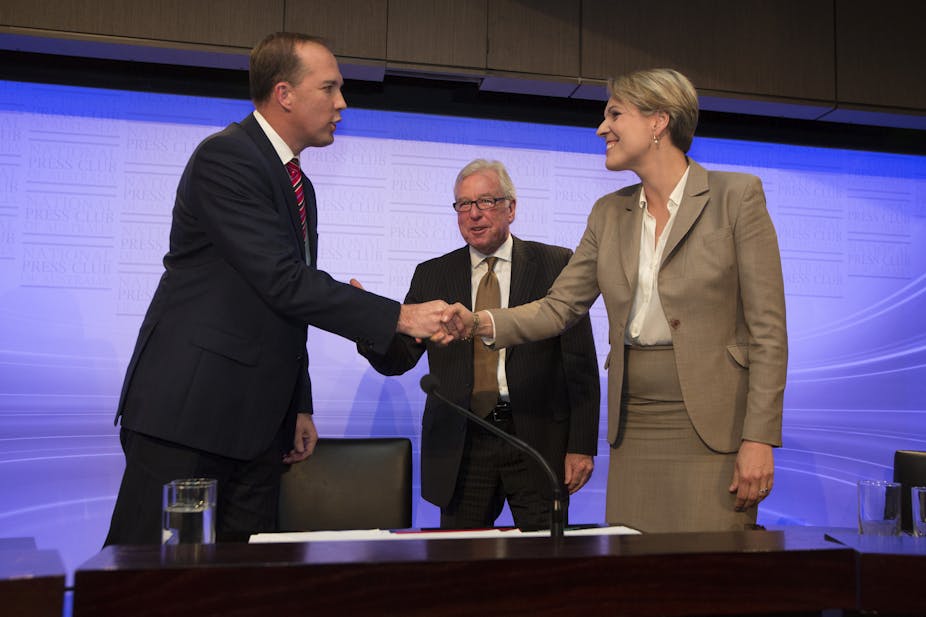Today, the National Press Club hosted a debate between minister for health Tanya Plibersek and shadow minister Peter Dutton. I went to Canberra for the show and what was outstanding about this debate was that so little came out of it.
The Liberals are pursuing a small-target strategy on health; they’re trying to ensure that health does not become one of the main issues on the election agenda. So Peter Dutton has pulled back from some of his earlier, more threatening statements about cuts.
Tanya Plibersek, on the other hand, was also not talking about major initiatives; running very much on Labor’s track record and a steady-as-she-goes approach.
Plibersek today said that the next reform agenda has to be about primary care. For the previous six years, the focus has really been on the national hospital reform agenda and transparency.
Primary care reform is extremely complex and has the potential to get key players offside and start campaigns against Labor, so she may be treading cautiously in this area for that reason.
Traditionally, health is an area of Labor advantage. And so the Coalition’s strategy has been to try and minimise the scare campaigns that might be run and to be a voice of reassurance in this campaign.
There was scare campaign against them at the start and that was that Medicare Locals were going to be abolished but Peter Dutton has pulled back on that. He has now said he is going to review Medicare Locals instead.
Dutton has previously spoken of the creation of a bloated bureaucracy under the Labor government and the Coalition’s health policy is that it would be pared back. Today, he committed to protecting some programs that were previously considered under threat. He also said he intends to redirect money to front line services, so it’s basically a waste agenda, rather than a primary-care reform agenda.
It was really difficult to pinpoint the key differences between the two. Plibersek spoke about Labor’s record in the last six years. Dutton was also running on the Coalition’s record, pointing to when Tony Abbott was health minister.
Dutton was trying to appear closer to Labor while obviously Plibersek was trying to say he couldn’t be trusted.
How you rate the debate depends on where you sit on key issues. Labor is running on its track record and policies like the dental scheme will appeal to some voters. Obviously, if you’re keen on supporting private health rebates or if you’ve got private health insurance, you’ll think the Liberals are a safer pair of hands.
The Coalition affirmed its position about private health insurance rebates in Opposition leader Abbott’s election launch speech, committing to increasing the health insurance rebate “as soon as fiscal circumstances allow”.
Both Dutton and Plibersek faced some really tough questions about out-of-pocket health costs and the financial barriers to access to health services. These are emerging as quite important issues in Australia.
There was no discussion about how we’re going to deal with restructuring the primary care system to address contemporary health needs, to deal with multi-morbidity (people who have more than one illness), or how we will deal with chronic illness.
But someone is going to have to deal with primary care reform and it would be better to do it sooner rather than later. Part of the problem is that what needs to be done is not simple. And the evidence for decisions that need to be made is quite weak.
This makes it a really tricky area to advance sensible reform and unfortunately an election campaign is probably not suited to the discussions we need.
Similarly, there was no discussion of the social determinants of health. In fact, there were a lot of other things that weren’t even talked about.

